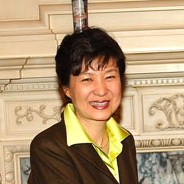The dynamics of triangular interaction among South Korea, Japan and China have constituted a central security paradox in Northeast Asia since the late 19th century, with South Korea cursed by its geographical position at the conflux of great power interests in the region. But the division of the Korean Peninsula and the aftereffects of Cold War rivalry, replaced in the post-Cold War world by the U.S.-North Korea nuclear standoff, have served both to obscure Sino-Japanese tensions over the Korean Peninsula, and to spur periodic trilateral and multilateral cooperation aimed at resolving the regional Cold War hangover caused by Korea’s division. This article will review the post-Cold War development of South Korea’s respective relations with China and Japan and analyze the impact of domestic political shifts on the prospects for trilateralism. It will also analyze the impact of China’s rise on the respective strategies of South Korea and Japan for dealing with China, both through each one’s foreign policies toward China and with reference to the role of alliance cooperation with the United States.
Post-Cold War Development of South Korea-Japan Relations
During the Cold War, Japan and South Korea were linked through their quasi-alliance with the United States, and normalized relations with each other in 1965 with U.S. encouragement. Japan and South Korea had already been linked militarily since the Korean War as Japan became a de facto staging venue for U.S. forces preparing to enter the Korean Peninsula. The arrangements surrounding Japan-South Korea normalization in 1965 made South Korea dependent on Japan for the economic assistance and technology transfer that proved vital to South Korea’s economic takeoff. However, the normalization of relations did not erase South Korean grievances toward Japan resulting from still-fresh memories of having been victim to Japanese imperialism and colonization, nor did the Japanese have high regard for South Korea’s authoritarian political leadership.

